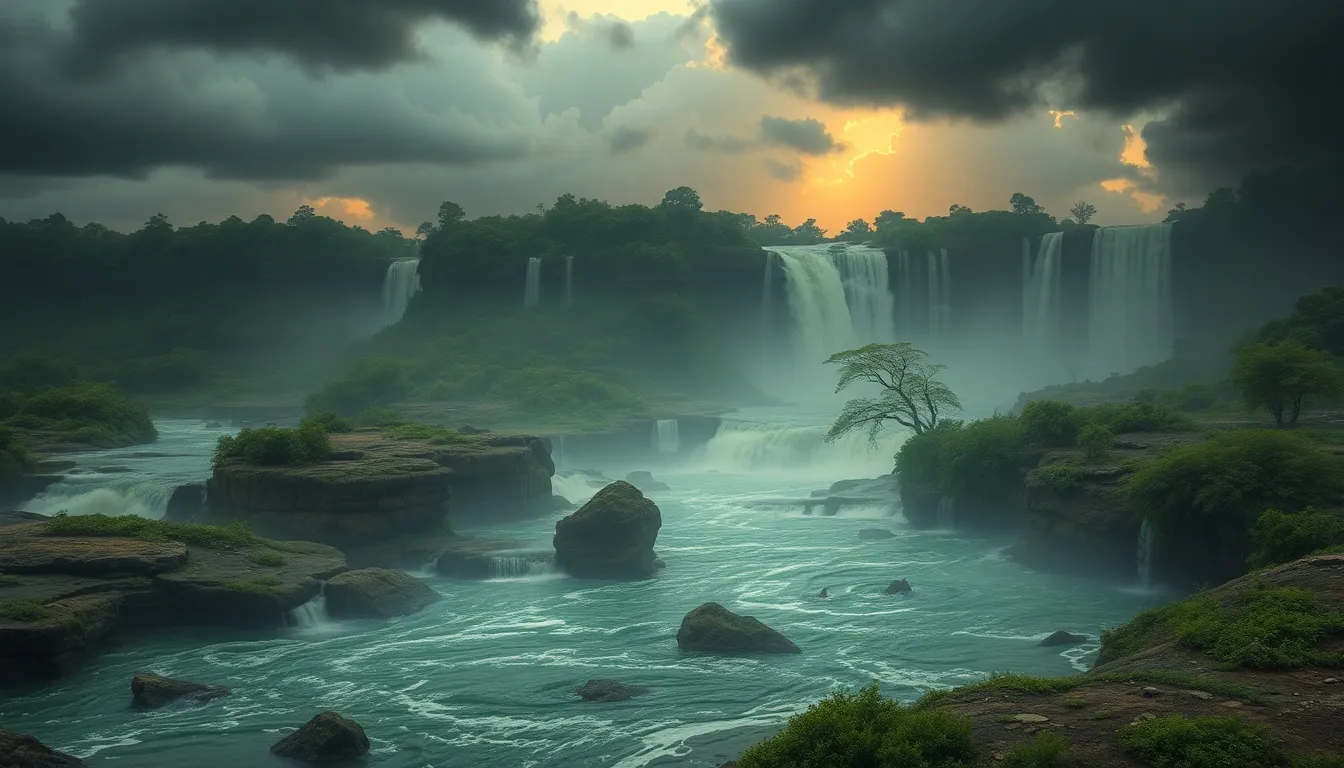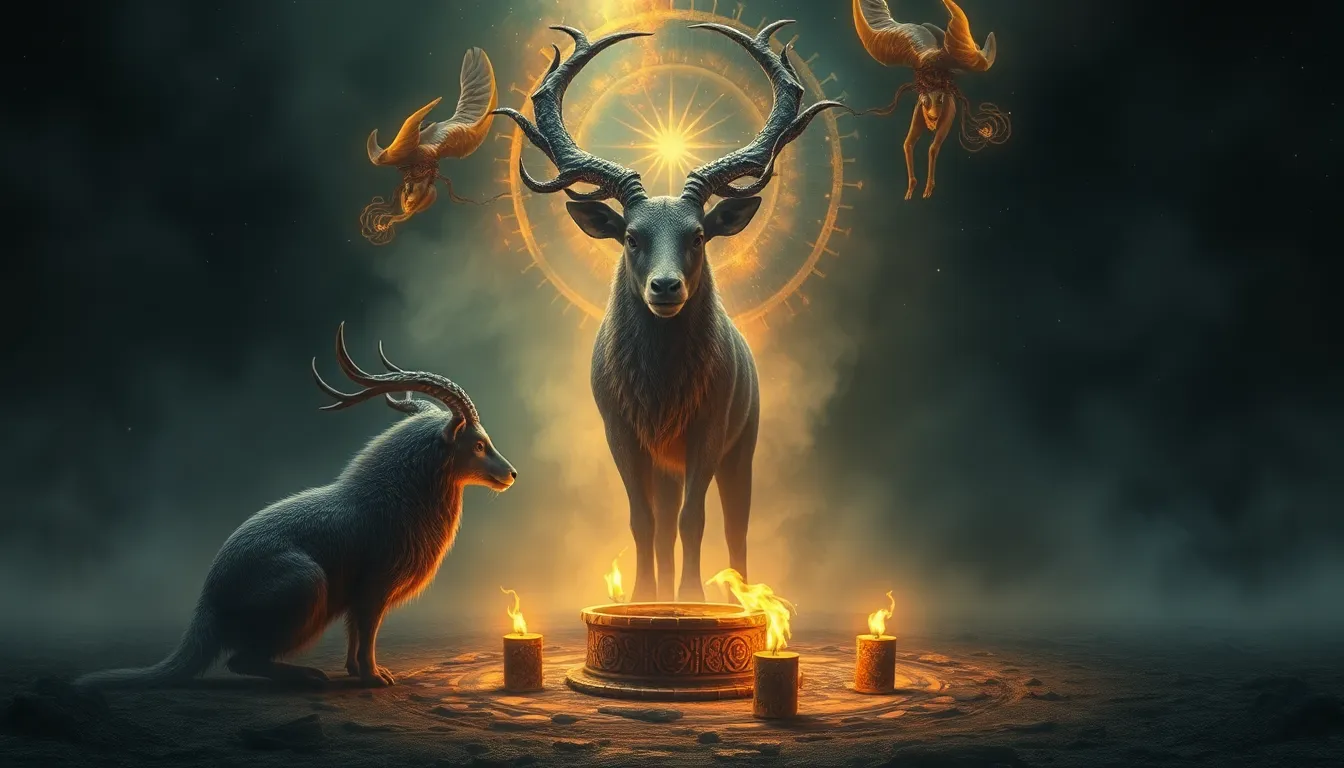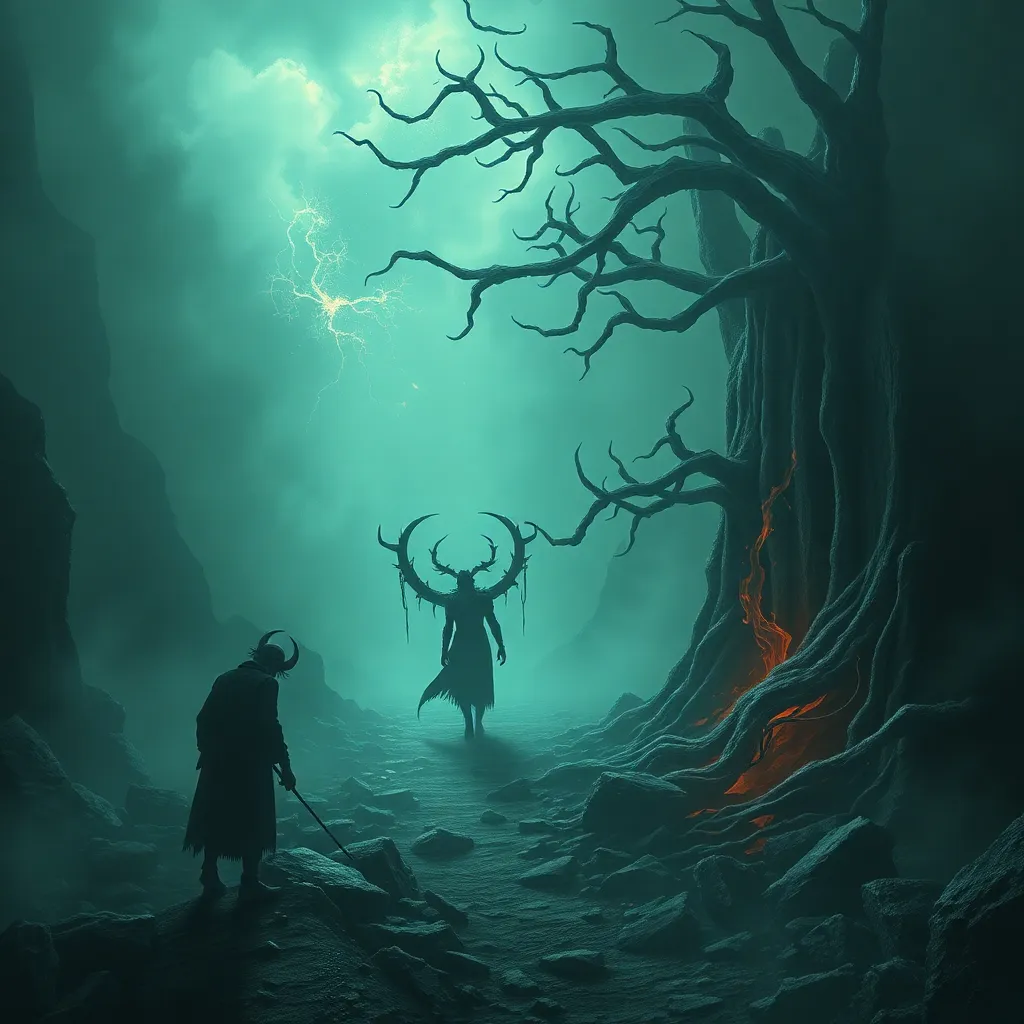The Mythical Floods of Africa: Rich Stories from the Continent
I. Introduction
The concept of floods has permeated the narratives of cultures worldwide, often symbolizing both destruction and renewal. From the Epic of Gilgamesh in Mesopotamia to the Biblical account of Noah’s Ark, flood myths resonate deeply within human consciousness. Africa, a continent rich in diversity and history, boasts its own unique flood stories that reflect the intricate relationship between its people and their environments.
This article aims to explore the significance of Africa’s flood narratives, delving into their historical contexts, cultural implications, and the lessons they impart to contemporary society.
II. Historical Context of Flood Myths
Oral tradition serves as the backbone of African storytelling, with myths and legends passed down through generations. These narratives often provide explanations for natural phenomena, social customs, and moral lessons.
Archaeological studies have uncovered evidence of significant ancient floods in various regions of Africa. For example, the geological history of the Nile River has shown fluctuations that likely influenced local myths. The connection between such natural disasters and myth-making is profound, as communities seek to understand and frame their experiences within larger cosmological narratives.
III. The Great Flood in African Mythology
The concept of a “Great Flood” appears across various African cultures, often mirroring themes found in other global flood myths. While there are similarities, each culture presents its own interpretation and significance of these events.
In comparison with the Biblical flood narrative, African flood myths often emphasize different aspects, such as the role of deities or ancestral spirits in the flood’s occurrence.
- African flood myths often depict water as both a destructive force and a source of life.
- Regional variations showcase unique cultural identities and environmental contexts.
IV. Key African Cultures and Their Flood Myths
Several prominent African cultures have rich flood myths that reflect their unique worldviews:
A. The Zulu and the Tale of Unkulunkulu
The Zulu people tell the story of Unkulunkulu, the first man who created life on earth. In their narrative, a great flood serves as a cleansing force, leading to a new beginning for humanity.
B. The Dogon and the Flood of the Nommo
The Dogon people of Mali recount the flood of the Nommo, ancestral spirits who were said to have been sent to guide humanity after a catastrophic flood. This story emphasizes themes of balance and harmony with nature.
C. The Yoruba and the Story of Olokun and the Great Deluge
In Yoruba mythology, Olokun, the deity of the sea, is central to the story of a great deluge that submerged the earth. This narrative explores the interplay between water, creation, and the divine.
V. Symbolism and Themes in Flood Narratives
Flood myths across Africa are imbued with rich symbolism, often reflecting profound themes:
- Themes of rebirth and renewal: Floods symbolize the possibility of new beginnings and the cyclical nature of life.
- The duality of destruction and creation: Water embodies both chaos and order, illustrating the complexities of existence.
- The role of water as a life-giving force: Water is essential for survival, representing nourishment and spiritual cleansing.
VI. Flood Myths and Environmental Awareness
Flood stories often reflect deep ecological knowledge, showcasing the intricate relationship between communities and their environments. These narratives can offer valuable lessons on climate change and sustainability:
- Many myths emphasize respect for nature and the consequences of environmental neglect.
- Traditional narratives can inform contemporary practices in conservation and sustainable living.
VII. The Role of Gender in Flood Myths
Gender dynamics play a significant role in African flood myths, with various depictions of male and female figures:
- Depictions of male and female figures: Often, male deities represent strength and authority, while female figures embody nurturing and wisdom.
- The significance of maternal figures: Maternal archetypes are prevalent, highlighting the importance of women in creation and survival narratives.
- Gender dynamics in storytelling: Women often serve as custodians of oral traditions, ensuring the transmission of these vital stories.
VIII. Modern Interpretations and Adaptations
Contemporary African literature and art have embraced flood myths, reinterpreting them for modern audiences:
- Writers and artists draw upon traditional narratives to explore current social and environmental issues.
- Globalization has influenced these adaptations, leading to a fusion of traditional and contemporary storytelling techniques.
Case studies in film and theater illustrate how flood myths continue to inspire and resonate with new generations.
IX. The Importance of Preserving Flood Myths
As modernization accelerates, the preservation of cultural heritage becomes increasingly crucial:
- Modern influences can threaten the continuity of oral traditions.
- Efforts to document and revive these stories are essential for maintaining cultural identity.
- Education plays a key role in ensuring that future generations appreciate and understand these narratives.
X. Conclusion
The richness of African flood stories underscores their importance in understanding cultural identity and environmental stewardship. These narratives, steeped in history and symbolism, continue to provide insights into the human experience.
As we navigate an increasingly complex world, recognizing and valuing traditional narratives can foster greater appreciation for the wisdom of our ancestors and the lessons they impart about resilience and coexistence with nature.
In conclusion, a call to action is imperative: let us actively engage in the preservation and celebration of these invaluable cultural treasures.




